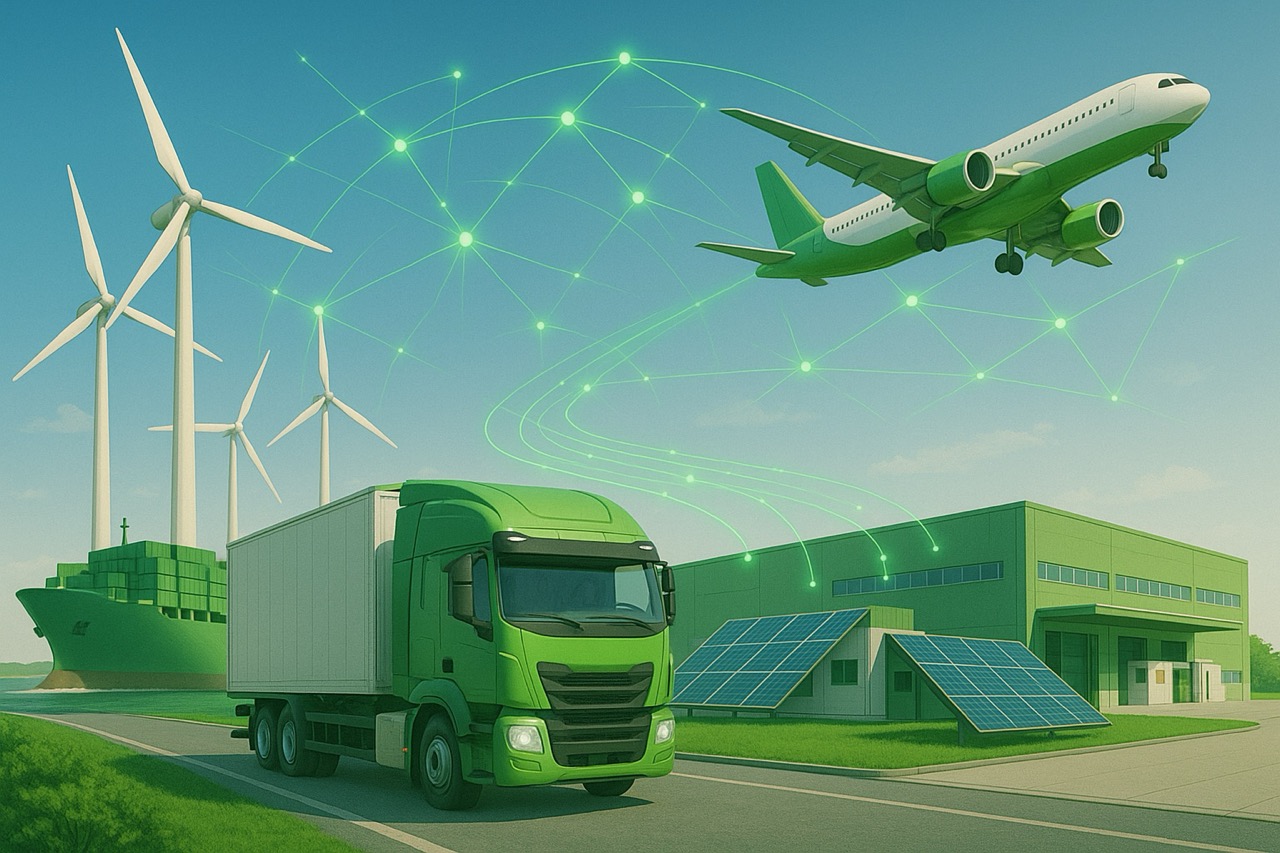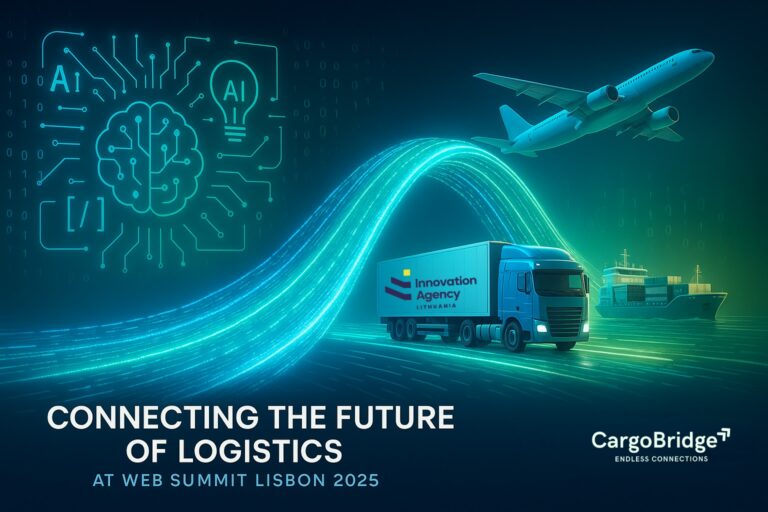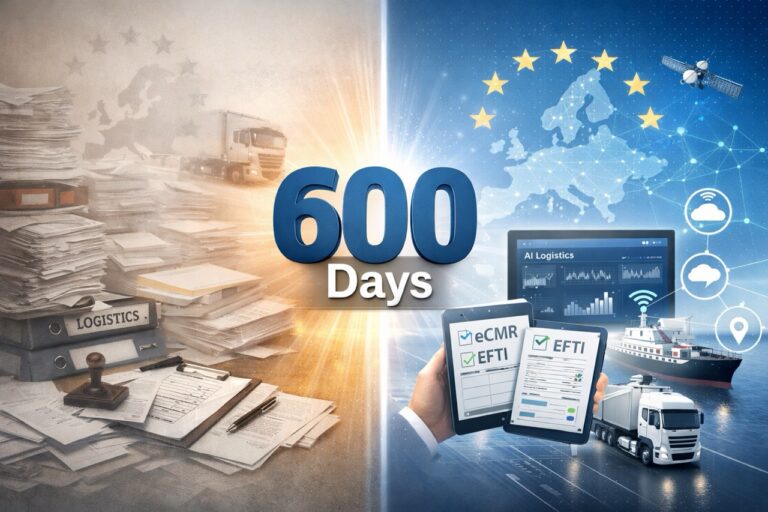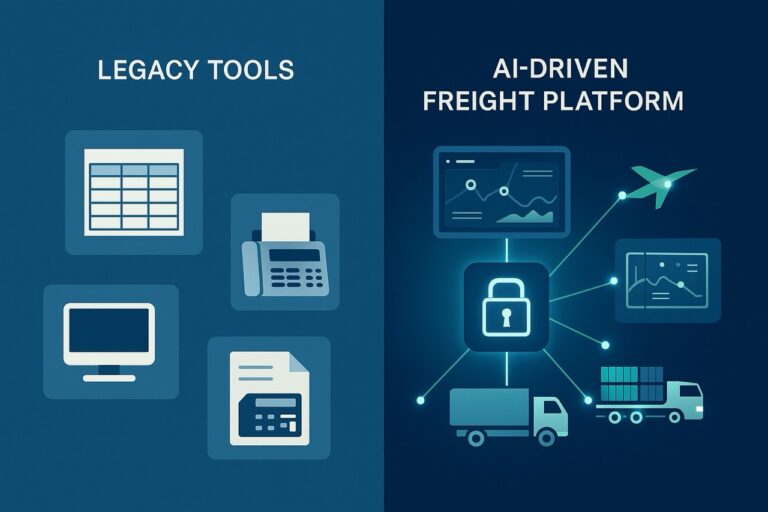Green Logistics Must Be More Than Marketing
Embracing Sustainability in Logistics
Sustainability has become more than just a buzzword, it is now a necessity for businesses in the logistics industry. As we approach the year 2025, companies are under pressure from regulators, consumers, and stakeholders to adapt to new sustainable norms. As a result, businesses are exploring strategies like alternative fuels and transparent sustainability reporting to not only comply with regulations but also improve their operational efficiency.
This article explores how the European Union’s electronic Freight Transport Information (eFTI) regulation acts as a catalyst for sustainable practices and how CargoBridge plays a vital role in supporting these transformative changes.
The New Sustainability Standards in Logistics
According to industry experts, including Illina Frankiv from Uber Freight, there are three key initiatives that will guide the freight industry’s sustainability efforts as we head into 2025:
- Alternative Fuels: Transitioning from traditional diesel fuel to greener alternatives is crucial. By adopting energy-efficient practices, companies can significantly reduce their carbon footprint and cut down on operational costs.
- Transparent Sustainability Reporting: This approach is essential for building trust with customers and regulatory bodies. Companies that excel in transparent sustainability practices will not only avoid penalties but also gain competitive advantages in the market.
- Smart Technologies for Operational Efficiency: By harnessing advanced technologies such as Artificial Intelligence (AI) and Machine Learning, logistics companies can optimize delivery routes, reduce waste, and enhance overall performance. Integrating these practices helps organizations meet regulations like eFTI while improving operational efficiency.
“Logistics is at a crossroads, and embracing technological advances alongside sustainable practices is no longer optional” says Frankiv.
Addressing Industry Pain Points
Today’s logistics managers face several challenges in implementing sustainability initiatives:
- Compliance Management: Keeping up with regulations like eFTI can feel overwhelming, especially for companies without the necessary tools.
- Operational Inefficiencies: Without the right technology, optimizing transport and minimizing carbon footprints can seem like a challenging task.
- Burgeoning Consumer Expectations: As customers increasingly demand transparency and lower environmental impacts, meeting these expectations is vital for business success.
CargoBridge emerges as a solution to these challenges, offering a comprehensive system that integrates seamlessly with existing workflows.
eFTI: Enhancing Compliance and Efficiency
The eFTI regulation, an important component of EU policy, requires a shift from paper documents to digital documentation for cross-border transport. This initiative aims to streamline operations, enhance data sharing, and ensure legal consistency in the supply chain.
- Digital Document Vault: CargoBridge’s digital document management system simplifies sharing and accessing compliance documents, thus easing the regulatory burden.
- Automated Carrier Matching: Utilizing AI capabilities, CargoBridge optimizes partnerships based on fuel efficiency and route transparency, aligning perfectly with sustainability objectives.
- Real-time Reporting Tools: These tools enhance transparency and track progress toward sustainability goals through detailed reports generated by CargoBridge.
Leveraging Technology for Sustainable Goals
Facing rising operational costs and sustainability demands, organizations must adopt smart technology solutions. AI and advanced analytics from CargoBridge facilitate:
- Predictive Analysis: By anticipating demand patterns, logistics companies can better manage capacity and minimize waste.
- Route Optimization: Using AI algorithms, companies can lower fuel consumption and cut emissions from their fleets.
In a world where consumers increasingly prioritize sustainability, those utilizing CargoBridge’s technology will maintain a competitive edge.
The Benefits of Integrating CargoBridge
When logistics businesses choose CargoBridge, they can expect:
- Increased Transparency: Meet consumer and regulatory requirements effortlessly, enhancing trust and loyalty.
- Operational Efficiency: Streamline operations to cut costs and boost profit margins with intelligent logistics solutions.
- Sustainable Growth: Establish your organization as a leader in the sustainability movement while ensuring compliance.
Conclusion and Key Takeaways
Sustainability in logistics is more than a fleeting trend, it represents a significant change that will shape the industry’s future. With eFTI regulations pushing the transition to digital practices, companies must act now to ensure compliance while enhancing operations. CargoBridge provides the necessary tools to navigate these changes effectively – helping logistics managers not just to meet regulatory demands but to thrive in sustainability initiatives. As we look ahead to 2025, commit to embracing a sustainable future. Connect with CargoBridge today to discover how our Marketplace and TMS can transform your logistics operations in line with the sustainable goals your business and the planet need.






